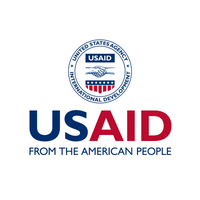The USAID Purge: A Storm of Controversy and Consequences
March 12, 2025, 10:51 pm

Location: United States, District of Columbia, Washington
Employees: 10001+
Founded date: 1800
The recent upheaval at the United States Agency for International Development (USAID) has sent shockwaves through the corridors of power and the global aid community. With a directive to destroy classified documents and a sweeping cancellation of programs, the agency faces an uncertain future. This drastic shift is not just a bureaucratic maneuver; it’s a seismic event that could reshape U.S. foreign policy and humanitarian efforts worldwide.
The memo from USAID's Acting Executive Secretary, Erica Carr, is a clarion call for chaos. Staff were instructed to shred classified documents and personnel records, a move that raises eyebrows and alarms. The urgency of the order suggests a desperate attempt to erase traces of a troubled past. The legal implications are profound. Lawyers representing USAID contractors have already filed an emergency request to preserve documents relevant to ongoing litigation. The stakes are high, and the consequences of this directive could ripple through the legal system.
The backdrop to this turmoil is Secretary of State Marco Rubio's announcement that 83% of USAID programs have been terminated. He argues that these programs squandered billions without serving U.S. interests. This sweeping purge is not merely a budgetary decision; it reflects a fundamental shift in how the U.S. engages with the world. Critics, including former diplomats and national security experts, have condemned the process as opaque and rushed. They warn that life-saving programs are being dismantled, leaving millions vulnerable to starvation and disease.
The implications of these cuts are staggering. Programs that once provided emergency nutritional support and clean drinking water are now in limbo. The rapid termination of contracts has left aid groups scrambling. Many have laid off thousands of workers, both in the U.S. and abroad. The humanitarian impact is profound. As the U.S. retreats from its role as a global leader in aid, adversaries like Russia and China are poised to fill the void. This shift could destabilize regions and undermine decades of diplomatic efforts.
The American Foreign Service Association has voiced its alarm. The destruction of records not only threatens transparency but also undermines accountability. Federal law mandates the preservation of government records. Ignoring this requirement could have serious legal repercussions. The Federal Records Act of 1950 was designed to ensure that government actions remain transparent and accountable. By shredding documents, the administration risks violating this fundamental principle.
The political landscape is fraught with tension. Democratic lawmakers argue that the shutdown of congressionally funded programs is illegal. They contend that such actions require congressional approval. The rapid pace of these changes has left many questioning the legitimacy of the process. The lack of clarity surrounding which programs are being cut adds to the confusion. Critics argue that the administration is dismantling vital programs without a coherent strategy.
The narrative emerging from this chaos is troubling. The Trump administration’s approach appears to favor a narrow interpretation of U.S. national interests. Programs that promote democracy, civil society, and humanitarian aid are being sidelined. This shift raises critical questions about the future of U.S. foreign policy. What does it mean for America’s role in the world? Will the U.S. continue to support allies and promote stability, or will it retreat into isolationism?
The internal dynamics within the administration are equally concerning. Conflicting orders from Rubio, Musk, and Marocco have created a power struggle that leaves many in the dark. Staffers are left wondering who is truly in charge. This uncertainty breeds anxiety and undermines morale. The lack of clear communication exacerbates the chaos, making it difficult for employees to navigate the shifting landscape.
As the dust settles, the long-term consequences of these actions remain to be seen. The dismantling of USAID represents a departure from decades of policy that viewed humanitarian aid as a cornerstone of U.S. national security. The idea that aid can stabilize regions and foster goodwill is being challenged. The implications for global stability are profound. As the U.S. steps back, adversaries are likely to step forward, filling the vacuum left by American withdrawal.
In conclusion, the turmoil at USAID is more than a bureaucratic reshuffle; it’s a pivotal moment in U.S. foreign policy. The destruction of documents, the cancellation of programs, and the internal power struggles all point to a significant shift in how the U.S. engages with the world. The ramifications of these decisions will be felt far beyond Washington. As the global landscape shifts, the question remains: what kind of America do we want to be? The answer will shape not only our foreign policy but also the lives of millions around the globe.
The memo from USAID's Acting Executive Secretary, Erica Carr, is a clarion call for chaos. Staff were instructed to shred classified documents and personnel records, a move that raises eyebrows and alarms. The urgency of the order suggests a desperate attempt to erase traces of a troubled past. The legal implications are profound. Lawyers representing USAID contractors have already filed an emergency request to preserve documents relevant to ongoing litigation. The stakes are high, and the consequences of this directive could ripple through the legal system.
The backdrop to this turmoil is Secretary of State Marco Rubio's announcement that 83% of USAID programs have been terminated. He argues that these programs squandered billions without serving U.S. interests. This sweeping purge is not merely a budgetary decision; it reflects a fundamental shift in how the U.S. engages with the world. Critics, including former diplomats and national security experts, have condemned the process as opaque and rushed. They warn that life-saving programs are being dismantled, leaving millions vulnerable to starvation and disease.
The implications of these cuts are staggering. Programs that once provided emergency nutritional support and clean drinking water are now in limbo. The rapid termination of contracts has left aid groups scrambling. Many have laid off thousands of workers, both in the U.S. and abroad. The humanitarian impact is profound. As the U.S. retreats from its role as a global leader in aid, adversaries like Russia and China are poised to fill the void. This shift could destabilize regions and undermine decades of diplomatic efforts.
The American Foreign Service Association has voiced its alarm. The destruction of records not only threatens transparency but also undermines accountability. Federal law mandates the preservation of government records. Ignoring this requirement could have serious legal repercussions. The Federal Records Act of 1950 was designed to ensure that government actions remain transparent and accountable. By shredding documents, the administration risks violating this fundamental principle.
The political landscape is fraught with tension. Democratic lawmakers argue that the shutdown of congressionally funded programs is illegal. They contend that such actions require congressional approval. The rapid pace of these changes has left many questioning the legitimacy of the process. The lack of clarity surrounding which programs are being cut adds to the confusion. Critics argue that the administration is dismantling vital programs without a coherent strategy.
The narrative emerging from this chaos is troubling. The Trump administration’s approach appears to favor a narrow interpretation of U.S. national interests. Programs that promote democracy, civil society, and humanitarian aid are being sidelined. This shift raises critical questions about the future of U.S. foreign policy. What does it mean for America’s role in the world? Will the U.S. continue to support allies and promote stability, or will it retreat into isolationism?
The internal dynamics within the administration are equally concerning. Conflicting orders from Rubio, Musk, and Marocco have created a power struggle that leaves many in the dark. Staffers are left wondering who is truly in charge. This uncertainty breeds anxiety and undermines morale. The lack of clear communication exacerbates the chaos, making it difficult for employees to navigate the shifting landscape.
As the dust settles, the long-term consequences of these actions remain to be seen. The dismantling of USAID represents a departure from decades of policy that viewed humanitarian aid as a cornerstone of U.S. national security. The idea that aid can stabilize regions and foster goodwill is being challenged. The implications for global stability are profound. As the U.S. steps back, adversaries are likely to step forward, filling the vacuum left by American withdrawal.
In conclusion, the turmoil at USAID is more than a bureaucratic reshuffle; it’s a pivotal moment in U.S. foreign policy. The destruction of documents, the cancellation of programs, and the internal power struggles all point to a significant shift in how the U.S. engages with the world. The ramifications of these decisions will be felt far beyond Washington. As the global landscape shifts, the question remains: what kind of America do we want to be? The answer will shape not only our foreign policy but also the lives of millions around the globe.
